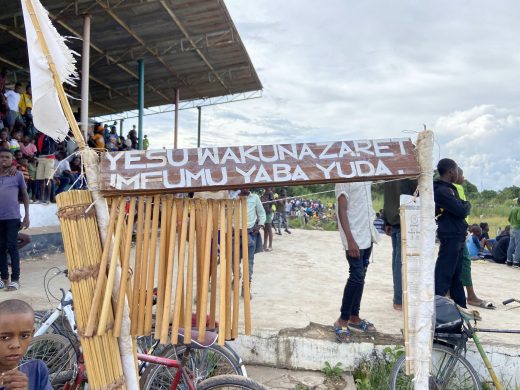CAS students collaborate with GlobalNyt on course-based articles
Globalnyt has published a two-part article series with two CAS students, supported by the Centre of African Studies
The first article is based on Buster Kirchner's bachelor-project idea in Religious Studies that came about after he attended a course on Religion, Media and Popular Culture in Africa at CAS in the spring of 2021. A course where research was an integral part of the teaching and students had the opportunity to try their hand at research in the field.

Kirchner explains that religion and football run deep in the souls of Zambians. One factor on the pitch is the forbidden and taboo practice of juju, where animal bones are buried at the opponents' goalposts and incantations are hung above the football pitch.
"It's an active act, something you do. In juju, accusation or suspicion is a key element. Often based on something unknown or suspicious," says Buster Kirchner, who has spent time in Zambia studying the phenomenon and living in Zambia for two years.
He wanted to learn more about the ritual practices and religious beliefs of Zambian footballers during football matches, so in April he conducted a field study in Zambia examining the link between juju and Christianity in Zambian football.
Explaining the link between football and religion, and how religion and spirituality form a key element for players during matches, he says that "Football is an area where you can see how traditional faith and Christianity interact,".
For more information read here, in Danish
The second article is written in collaboration with CAS student Emil Gundel and is based on a paper he wrote at CAS.

This article is about Somalia's very special poetry tradition that has had a huge impact on the country, where poetry spread with the wind and was the clans' way of communicating. Today, social media is breathing new life into the tradition.
Somalis don't always get the usual honking ring in their ears when they dial their phones. Instead, it may be a poem relaying public service information. Because poems and poetry play a big role on those edges. Even if written language, new media and globalisation have challenged the art's historical monopoly and traditional genres have fallen out of fashion.
"Poetry certainly still has an important position in Somali culture. It is an exciting task to study something as important to another culture as poetry is to Somali culture, and despite the great help I have received, it is with humility and recognition of my limitations that I contribute to this article," says Emil Gundel, a student at the Center for African Studies.
He goes on to say that poetry has been given new life on social media, which in Somalia is at least as prevalent as television, both in rural areas and in big cities. Poetry and social media have given women, even the most religious and conservative, a valuable platform to participate in social debates
For more information read here, in Danish
